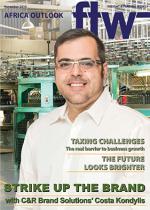Trade barriers remain one of the
biggest impediments to growing
trade with and within Africa.
According to Donald Nay,
regional senior commercial officer,
sub-Saharan Africa, for the US
Commercial Service barriers such
as local-content requirements,
inefficient customs clearance and
payment processes, high tariffs and
limited access to finance are some
of the major obstacles for American
companies doing business in Africa.
Charles Brewer, managing
director of DHL Express sub-
Saharan Africa countries agrees,
saying it is especially the lack of trade
agreements that impacts negatively.
“Yet many countries are
recognising that they need to
find ways to make their markets
accessible and easier to do business
with. A great example for the region
is Rwanda, which is looking to
strip away bureaucracy, remove the
red tape and make the country an
attractive destination for trade and
investment. More African countries
need to follow this example, and the
region will reap the rewards in the
long term,” he says.
Another challenge, says Nay, is
the lack of infrastructure on the
continent.
Strong infrastructure improves the
ease of doing business and is central
to industrial competitiveness.
“Political
instability, weak
or dysfunctional
institutions,
corruption, slow
implementation
of business- and
investmentfriendly
policies,
and the lack of
work force skills
and development
all affect trade
and investment
and are challenges that have to be
overcome,” he said.
Despite these issues countries such
as the United States have committed
to growing their trade with African
states who have welcomed the move
to diversify away from traditional
markets such as Europe. At the same
time there is also a strong drive
towards growing trade regionally
amongst African countries.
“There are many ‘misconceptions’
about Africa that many believe play
just as a big a role in slowing down
trade with Africa,” said Nay. “For
decades, misconceptions about
Africa have
abounded in the
media, thereby
dampening
business. These
need to be
countered more
effectively by
all countries
concerned,” he
said.
Africa itself
is working
hard to change
these perceptions, with regional
organisations such as the East
African Community (EAC), the
Southern African Development
Community (SADC) and the
Common Market for Eastern and
Southern Africa (Comesa) tirelessly
adapting and implementing policy
that will address trade barriers.
INSERT & CAPTION
Many countries are
recognising that they need
to find ways to make their
markets accessible and
easier to do business with.
– Donald Nay

